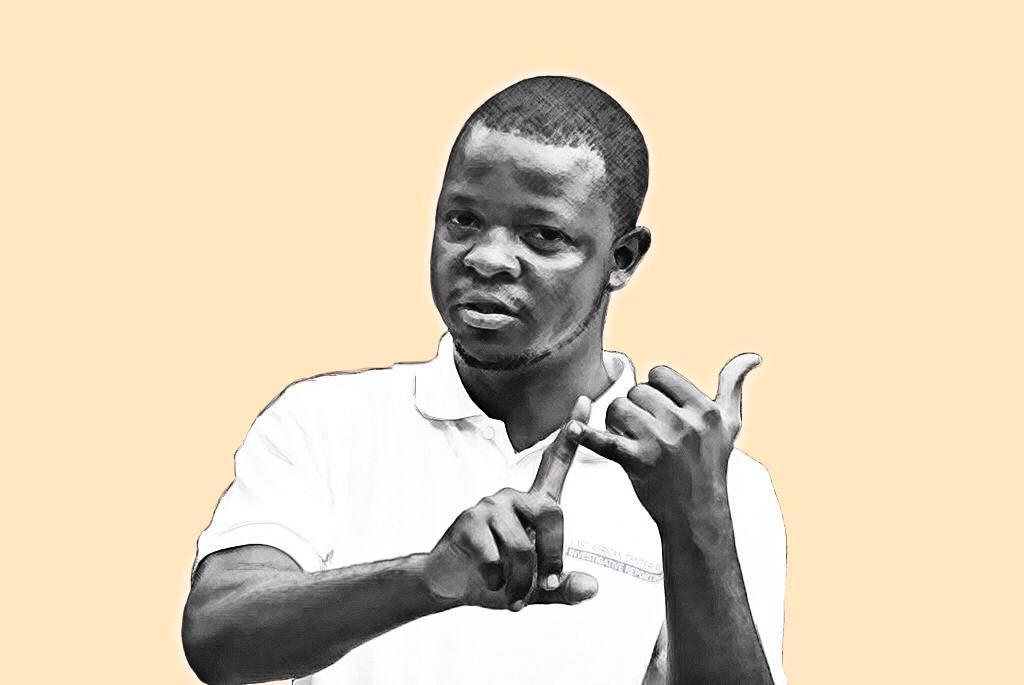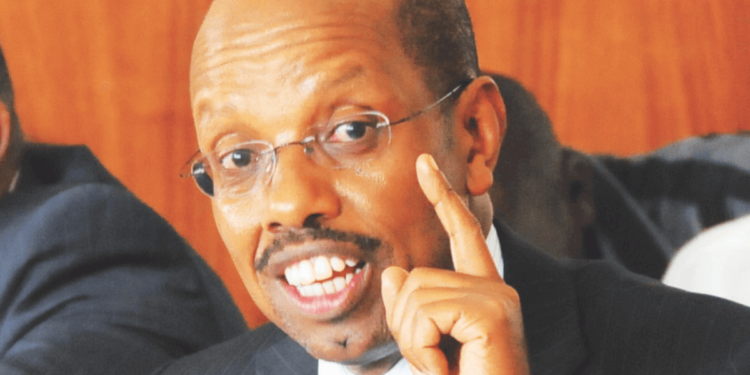Mr. Keith Muhakanizi, who dedicated his entire adult life to distinguished service of country and mankind, has rested from the trials and tribulations of this world. As many have noted, it is, the exit from the Shakespearean stage of life, of yet again, an eminent economist and public servant of his generation. Duty called, he rose to the occasion, played his part and now the creator has recalled him. We keep his family and friends in prayer.
I will, in this modest obit, restrict myself to a couple or so experiences I had with him.
- A few years ago, I requested to meet Mr. Andrew Mwenda (I don’t recall over what). He asked me to find him at the Ministry of Finance. When I reached there, he asked me to find him at the office of the Permanent Secretary/ Secretary to the Treasury. There, I found his legs on Mr. Muhakanizi’s desk as Keith sat back in his chair. This was odd but spoke volumes about how close the host and guest were. More importantly for me, the PS came off as unassuming, free from the trappings of power and just “a cool guy”. My meeting with Andrew effectively took place in Keith’s office, in his presence. Another person who wanted to see him (Mwenda) also joined us in Keith’s office. Basically, he was conducting his private meetings in the office of easily one of the most powerful men in town, his legs (with shoes on) comfortably placed at his (our) host’s office table.
The discussion, like a pendulum bob, swung across different subjects. From the economy ( I recall his remarks in opposition to the creation of numerous districts which was a burden to the Treasury but the political class were unstoppable in their bid to bloat the cost of public administration). Then the discussion shifted to the politics of the day. I remember something to do with the appointment of Lt. Gen. Henry Tumukunde by President Yoweri Museveni as a pivotal component of his 2016 campaign infrastructure.
Mr. Muhakanizi jokingly told Mr. Mwenda, “You know Tumukunde is my relative.”
“Yes, I know Tumukunde is your relative,” Mwenda replied.
The host went on, “If I were that relative of mine, hmmmmmmm, you arrest me, put me under house arrest, keep me out of office for that long then you appoint me to lead your campaign…..if I am that relative of mine, I will chew all your campaign money.” He touched his lips to demonstrate it.Everyone in the office burst out and laughed hard before Mwenda retorted with a giggle, “………….And I can assure you that is what that cousin of yours will do.” We laughed again. It was all banter really. I don’t think this was a value judgement on anyone but that was Mr. Muhakanizi’s humourous way of painting a picture on the irony of politics.
What stood out for me in that meeting is that Mwenda intended to write an article in his Independent column (old age takes its toll on our memories so I don’t exactly recall the subject but it was an economics issue). He was, in effect, picking Keith’s mind for his article, taking notes and in between, Keith would summon one of his officials from the line department to give more insight or cross-check something. Then they would erupt into an argument, Keith stands up, hits the table, Mwenda stands up too, gesticulates to illustrate his point then they laugh in unison, calm down and get back to business (Mwenda’s legs back on his office table). This, for me, as a university student, felt like sipping wine from the feet of Greek philosophers of old. I wished it went on, all day and night. The sheer intellectual wealth in that room penetrated the heart and mind wholly.
So yes, if you read Mwenda’s “The Last Word” column, I came to appreciate from this first-hand experience, he is not your every-day Kampala columnist writing things they have only done a Google search about or simply regurgitating their sentiments. He takes time to speak, intimately, with the real actors, people with skin in the game. This, for a 600 word column, not a QnA interview or story for the news pages. I found this profound on the part of both Keith and Andrew; the former for his willingness to share rich experience and wisdom gathered over decades with a writer and the latter for his genuine, constant and sustained thirst for knowledge.
Through such acts, we can confidently say, that Keith contributed, indirectly and directly, to better and more-informed, analytical journalism because I recall Mwenda, while introducing me to him (Keith), saying, “This is the man who made me. I am the journalist I am because of Keith. If you want to become a good journalist who understands the economy, he is the man.” Keith was only smiling and throwing jabs at his guest and friend, shying away from being given too much credit.
Above all, one could tell theirs was a deep friendship and bond built over years and both Andrew and Keith added value to each other.
My second experience with the departed colossus of the Ugandan economy was a brief one. Around third year of my time at the School of Law, Makerere University, by which time I was a full time writer with the Monitor (having begun that journey in high school), I was asked by Mr. Joseph Beyanga to join KFM radio’s morning crew (D’Mighty Breakfast) for a segment called “The Hotspot” which was opportunity for a bit of analysis and perspective of the events that were of public interest to the listeners, usually politics. This segment was started by Mr. Chris Obore who had since joined Parliament of Uganda as Director, Communication and Public Affairs. To be asked to wear the big shoes of such an outstanding journalist and analyst was both humbling and challenging. Anyway, on one of those mornings, I was discussing something to do with the economy and, typical of a 22 year old in a liberal media environment such as Monitor offers (offered?), I was projecting the economic situation in Uganda as grim, citing (selectively), stats that buttressed my argument.
Keith called Management and asked to be put on air to give his perspective as the man in the kitchen of the country’s economy. That he was listening and was happy to dive into the debate was heavenly for me and even more humbling that he shared his perspective with such grace and respect for divergent views, inviting me, live on air, to his office for a lecture on the economy. More importantly, you could tell the man loved his job, was passionate about it, was authoritative, collected in thought and unshakable in his convictions.
Lastly, again, with reference to Chris Obore, who was friends (acquaintance?) with Keith and the public good. In his days as Investigations Editor of the Monitor, Chris was really more of a writer than an editor because he derived more passion and satisfaction breaking the big stories than being an arm-chair editor (something I see in the current Managing Editor of the Monitor, comrade Tabu Butagira).
So, Obore wrote a number of investigative stories about National Medical Stores and how officials there were deliberately inflating prices of anti-cancer drugs (readers can check out all these stories on Google search).
Officials at NMS were so emboldened that part of the script included buying anti-cancer drugs from countries like India that were just about to expire at give-away prices (later inflated) that would arrive in Uganda and be destroyed after. There were a host of other despicable things that the good chaps at NMS were doing. Uganda Cancer Institute fought back. NMS was vicious in its responses. Obore (Monitor for that matter) pushed back with explosive investigative pieces on this issue. Obore left to join Parliament. I had grown through the newsroom from the teenager writing lifestyle stories to now the Special Projects and Investigations Desk writer. Working under the guidance of Charles Odoobo Bichachi (Managing Editor, Weekend) and Patrick Matsiko Wamucori (Weekend News Editor), I started on the anti-cancer drugs story, from where Obore had left. We published more articles exposing NMS mischief (all available online). Our sources were both from Uganda Cancer Institute and one of the security agencies. NMS fought back, including sponsoring propaganda adverts in our own media platforms like NTV denouncing the Monitor investigations.
Enter Keith Muhakanizi. Keith had a contact in one of the security agencies that he regularly used for special operations/assignments when he was in Finance. That contact had written for him a report on the issue of anti-cancer drugs and the Monitor stories. Keith was persuaded that there was a problem but he could not, as the supervisor of accounting officers, take action, simply on the basis of newspaper stories. He asked that security operative to pose as a whistle-blower from Ntungamo, write to his office (quoting the Monitor stories) and pose as someone with a patient at Cancer Institute who can’t get affordable drugs and now suspects the reason is what Monitor has been writing about.
On the basis of that dossier, Keith ordered for a special audit into the issue of anti-cancer drugs and the audit report affirmed what Uganda Cancer Institute had been raising. Both UCI and Monitor were vindicated by the auditors, thanks to Keith’s efforts (behind the scenes). Long story cut short, there were several meetings thereafter and Parliament since passed the Uganda Cancer Institute Bill (2018) (now an Act) that, among other changes, empowers UCI to do its own procurement of drugs. The situation of anti-cancer drugs has since changed, for better. It took the genuine concern of distinguished public servants with a sense of right and wrong, like Mr. Muhakanizi, to correct things without playing to the gallery or seeking cheap popularity. Dr. Jackson Oryem (Director, Uganda Cancer Institute) often told me as we did these stories, that in Keith, he had an ally at Finance and that alliance resulted in a better Uganda Cancer Institute. He just couldn’t understand why anyone would want to profiteer from cancer drugs, of all things.
What does all this say about the man? He was a fine economist, intellectual, public servant and so many other things but above all, he was, for all intents and purposes, just a good man, a decent human being, a patriot with remarkable conviction in his own role in making his motherland a better place. At 64, God called him a tad too early but as Mr. Mwesigwa Rukutana has observed in his glowing tribute, God’s decisions are His alone. Rest in Peace, Giant. You played your part. You left our country better than you found it.

Ivan Okuda is an Advocate of the High Court and a Writer


